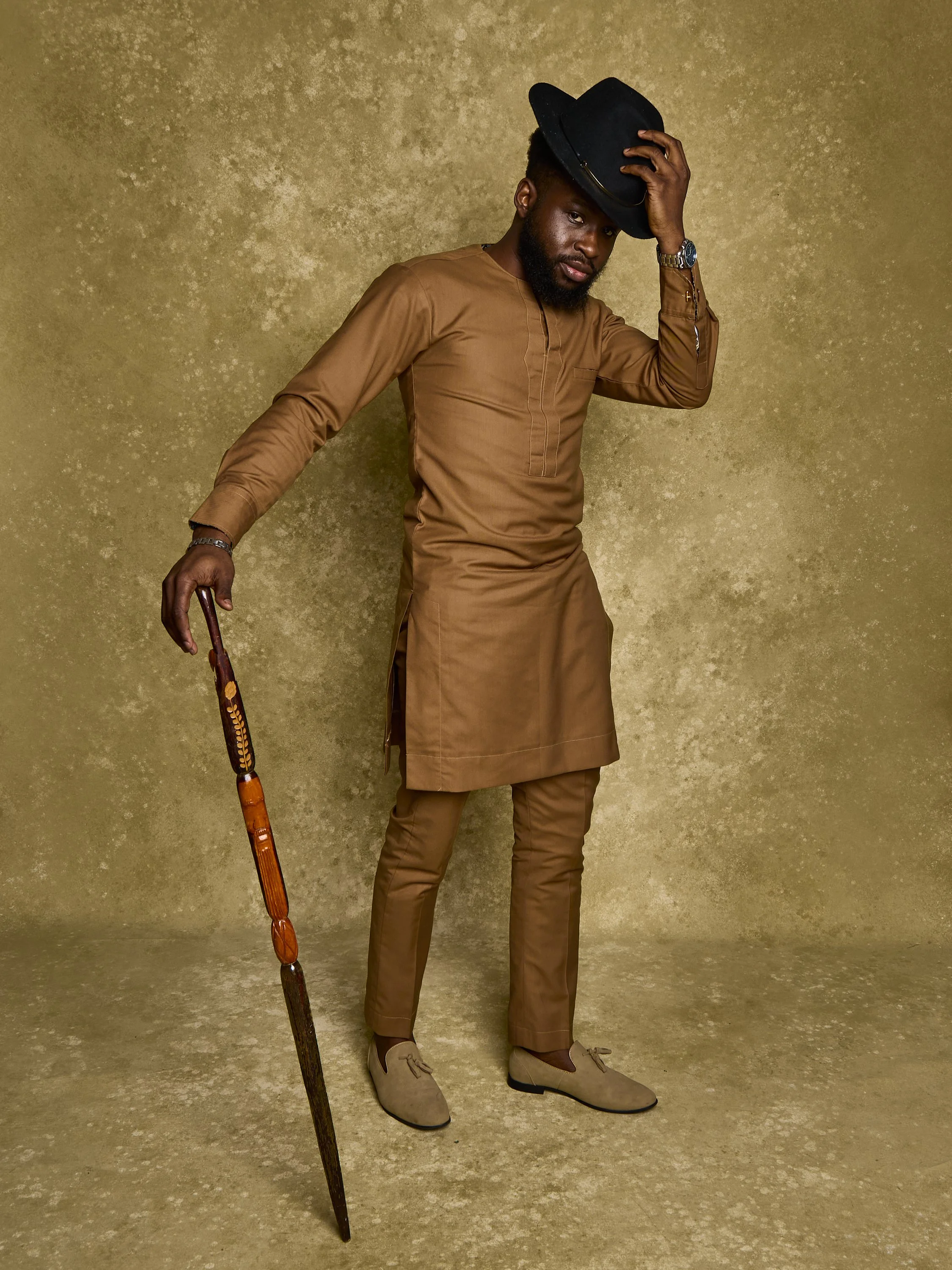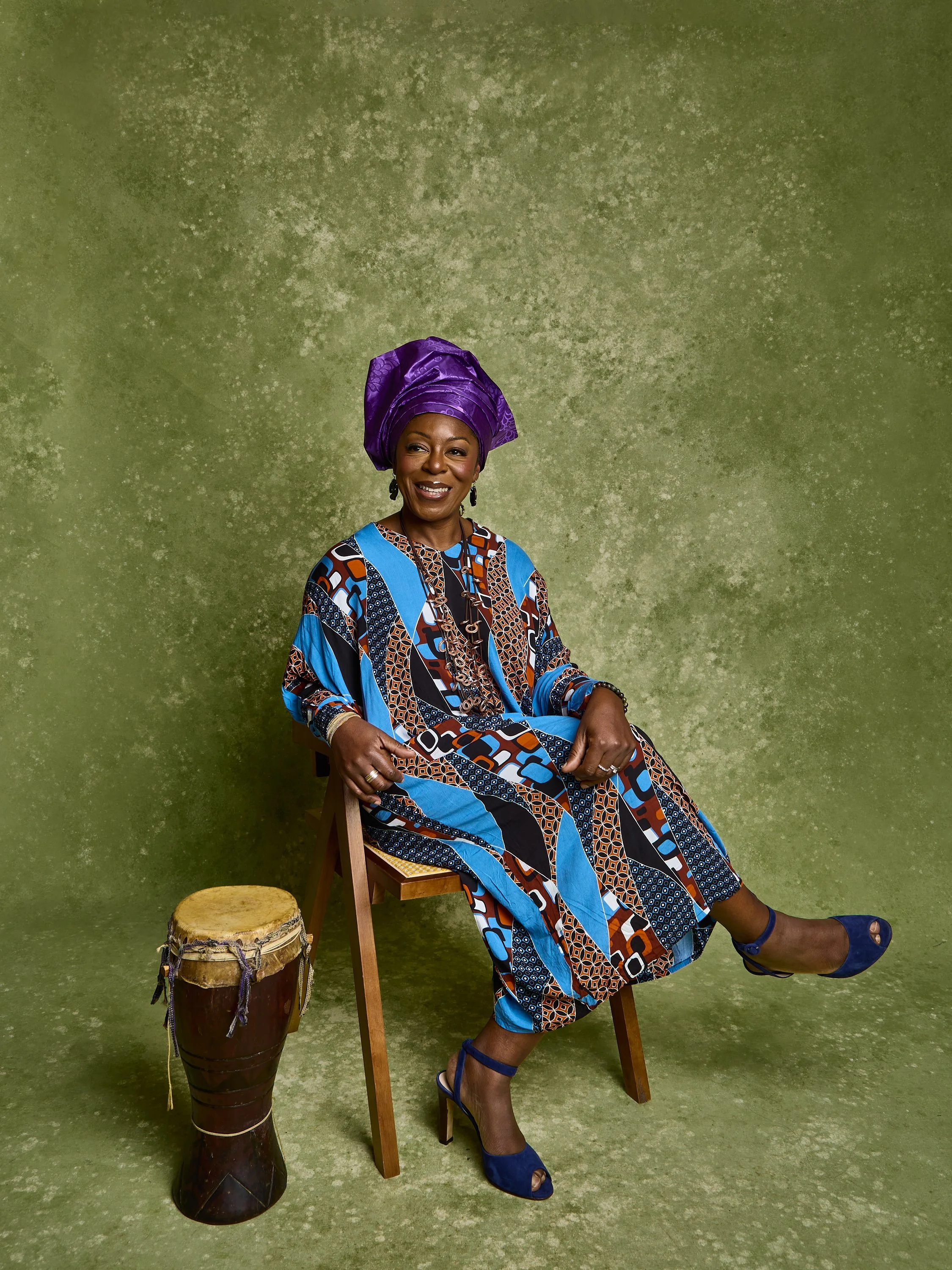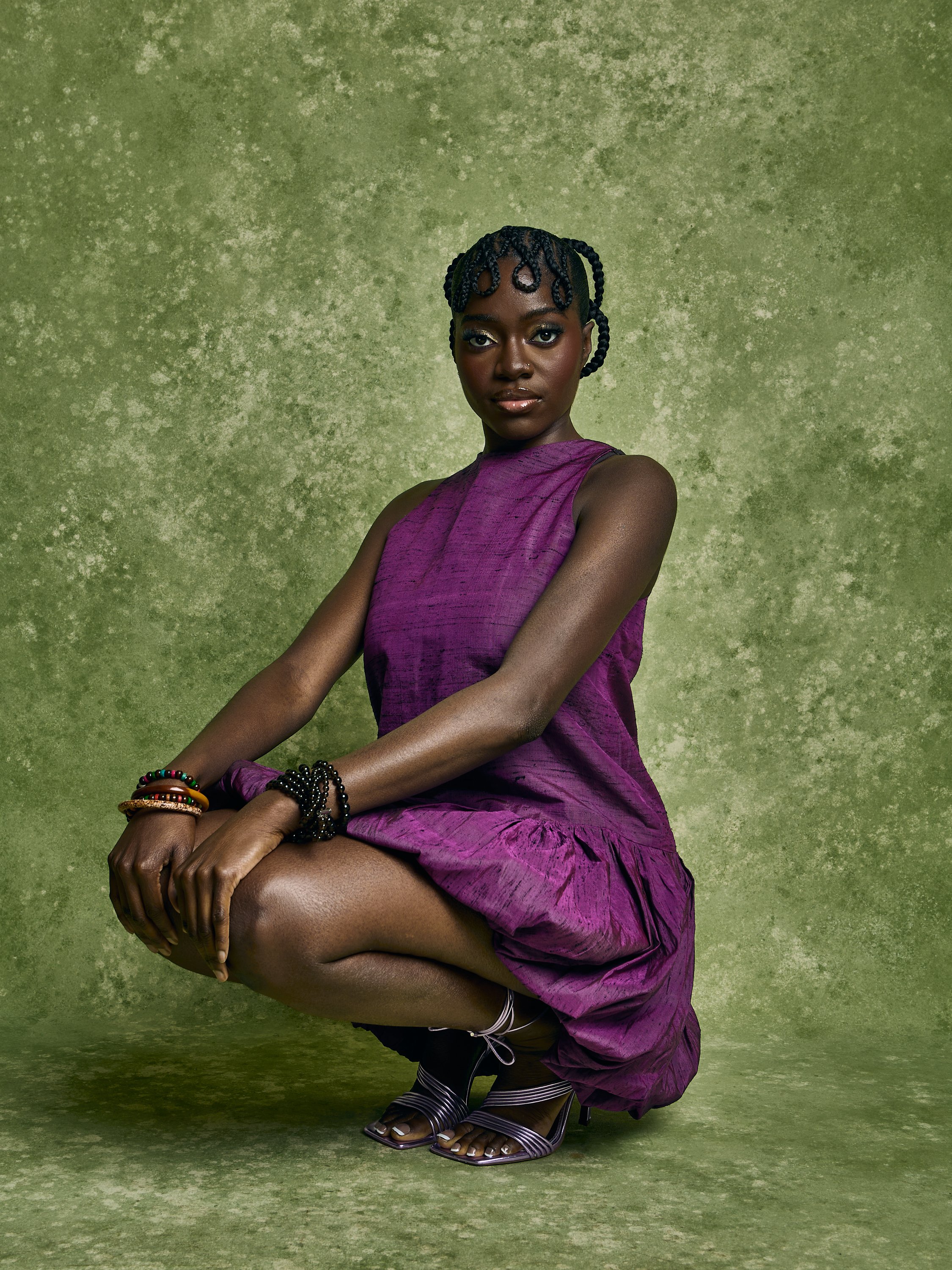British-Nigerian Portrait Series By Tobi Sobowale
A CONTEMPORARY PORTRAIT SERIES;
THAT EXPLORES THE DUAL IDENTITIES OF INDIVIDUALS WHO IDENTIFY AS BOTH BRITISH AND NIGERIAN.
Photographer / Art Director: Tobi Sobowale
Hair Artist: Jamique
MUA: Riana Juma and Muibat Adedoja
Fashion Stylist: Anita Makinde
Photography Assistant: Sarafina Shakespeare
British-Nigerian is a celebration of the rich cultural heritage, diversity, and resilience of the Nigerian diaspora in the United Kingdom.
Inspired by the iconic portraiture of Lagos in the 1960s and 1970s—an era of newfound independence from British colonial rule—this series looks to capture not just the aesthetic qualities of Nigerian culture, but the personal stories, styles, and individuality of British-Nigerians today. The photographs reflect both the historical significance of Nigeria’s post-colonial era and the evolving identity of the diaspora in a modern context. These portraits are taken through a contemporary lens, exploring the balance between heritage and modernity in a multicultural society.
Commencing the exploration of dual identity, the impact it has on our personal stories and societal contributions, creator of this contemporary British Nigerian portrait series, Tobi Sobowale unveils her story and objective behind the editorial. It’s not often you witness the documentarian step out from behind the lens and into the spotlight. In this rare and beautiful moment, Sobowale offers an intimate glimpse into being British-Nigerian, later leading you to her photographic archive.
TOMI ELEGBEDE (LEFT), OLUWATENIOLA ORISARAYI ELEGBEDE (RIGHT)
“I identify as British-Nigerian. British by birth and Nigerian by heritage. If someone asks me, where I’m from, I’ll say I’m from Nigeria and growing up was the norm, it needed no explanation and maybe that’s primarily because I was surrounded by other Black Brit’s with similar backgrounds so they understood what I meant. When I went to university in Newcastle people would ask me where I’m from. I didn’t know if they meant where am I from in the UK as in London or where does my Blackness come from as in Nigeria.
When I started working, the answer went back to being Nigerian. It wasn’t until recently that I realised people thought I meant that I was born there. I thought my ‘British-ness’ was obvious from my accent so I never really felt the need to explain that part. I had a conversation recently with a Nigerian friend and he said I’m not Nigerian after I explained that I had a passport, although it had expired. He joked saying, people who are Nigerian, do not allow their passports to expire because it’s the only passport they have.
Being British-Nigerian is a beautiful but complicated identity. For myself, it means not feeling fully like you belong to one or the other. Not British enough because of my Blackness and not Nigerian enough because well, I wasn’t born there. There is also the beauty in identifying with so many other people who have a similar duality, those who identify as British-Nigerian, the Black Brits whether from Ghana, Jamaica or other parts of Africa and the West Indies. Through both cultures, my understanding of the world and perspective on life has been shaped by both. By the music, colour, history, language of my Yoruba culture, and the lived experiences, music, and culture of being Black and British. There is an importance in telling our stories and archiving what is today. I want my photography to form part of an archive that people can reference and say here are stories of Black Brits and British-Nigerians in the UK in the 21st century. This project is a celebration of the duality of culture, language, fashion, and more.”
LOLA WORGAN (LEFT), ESTHER KITTO (RIGHT), photographed by Tobi Sobowale
Supporting the richness, complexity and exploration of the British-Nigerian identity, the portraits are paired with the voices of our community as they reflect on a central question: what does being British-Nigerian mean to you? Their answers—honest, layered, and deeply relatable—sit alongside images that capture their presence, creating an intimate dialogue between word and photograph.
“Identity-wise, it was a challenge between describing myself as a British-Nigerian or Nigerian-British. I believe the former is my reality.
It means letting go of my ‘fresh’ accent and to stop pretending that I can retain it. It means realising that my new home town is in London and not in Nigeria anymore.
It meant historically opening up my dating criteria to who I loved and not just “real” Nigerians. It meant not always expecting to eat Pounded Yam and Eforiro everyday anymore.
It means looking to create a future in my new home, a kingdom that didn’t create me but made me into the man I am today.”
Paul Daramola
COUNTRY OF BIRTH: LAGOS, NIGERIA
TRIBE: YORUBA
“Having the ability to successfully navigate 2 cultures whilst not losing your own identity, and being able to pass on the advantages of a dual heritage to your mixed race children.”
Esther Kitto
COUNTRY OF BIRTH: LONDON, UK
TRIBE: YORUBA
“To me, being British-Nigerian is about living in two worlds at once. It’s celebrating my Nigerian roots—like the food, music, and traditions—while also embracing life in Britain and the privilege I have to be here. Sometimes it’s a balancing act as sometimes you feel you don’t fit in with either culture but it’s a big part of who I am.
It means pride in both cultures and finding my own way to blend them.”
Gbemi Amaja
COUNTRY OF BIRTH: LONDON, UK
TRIBE: YORUBA
“It means navigating how to uphold one’s traditions and cultures in a place that has a significant lack thereof but still being able to blend in with its people’s. Lastly, being British Nigerian looks like a community of young, talented & resilient individuals that are proud to call themselves Nigerians in the diaspora and that are trying to make a way for themselves without getting lost in this strange country and losing the heart of their home.”
Oluwateniola Orisarayi
Elegbede
COUNTRY OF BIRTH: LAGOS, NIGERIA
TRIBE: YORUBA
“Being versatile, code switching when required but having deep embedded roots in my culture down to the food, music and clothing.”
Abi Kasim
COUNTRY OF BIRTH: LAGOS, NIGERIA
TRIBE: YORUBA
“I love the fact that there is an interplay of these two distinct yet interconnected cultural identities, showing up in every facet of my life. Whether it be in the music I listen to, books I read, how I dress or even in the foods that I consume, I am always representing and I love that for me! Although I do always joke that I am more Nigerian than British, I recognise the importance of both cultures to my identity and understand the onus as one in the diaspora to make sure that whilst embracing a new culture, I still stay rooted in my heritage.”
Tomi Elegbede
COUNTRY OF BIRTH: LAGOS, NIGERIA
TRIBE: YORUBA
Together, these portraits and voices remind us that the British-Nigerian identity is not a single story, but a constellation of experiences—each unique, yet bound by a shared thread of resilience, pride, and creativity. In listening and looking, we honour the richness of these stories and the generations who continue to shape it.










